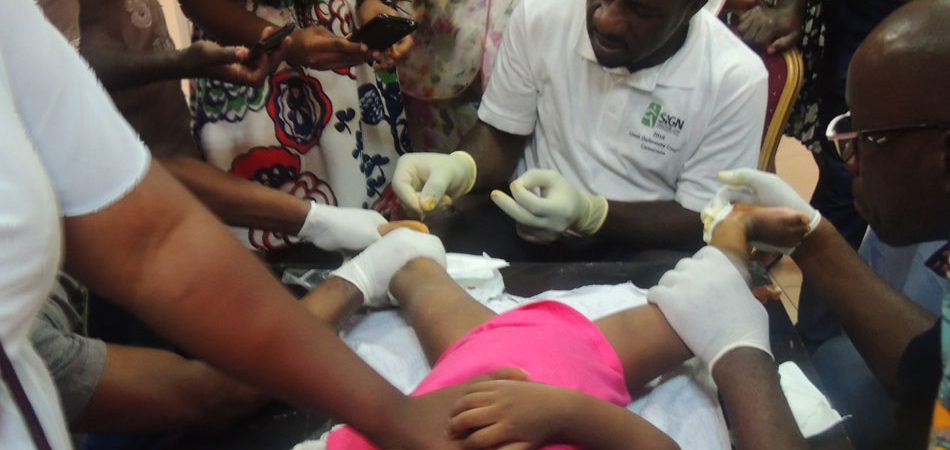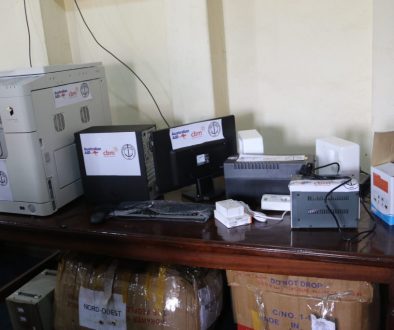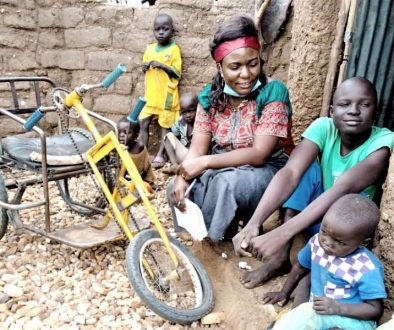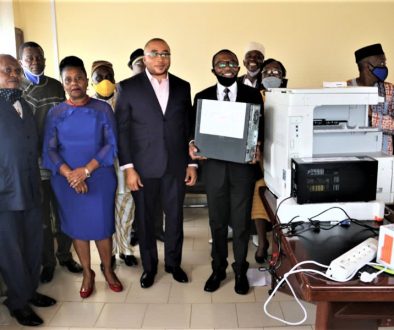CCC Project Hones Skills of Staff on Clubfoot Treating
By Fru Rita Ngum
Edited by Njoka Divine
Clubfoot treatment staff from some selected partner clinics of the Cameroon Clubfoot Care (CCC) Project have seen their skills sharpened on the Ponseti method of treating clubfoot. This was during a recent 3-day refresher course organized by the CCC Project in Yaounde. The training which brought together 17 participants from 12 partner clinics was aimed at improving on the skills of participants who had received the same training before, and building the capacity of those who were attending it for the first time.
During the workshop, the participants mostly physiotherapists and physiotherapy assistants acquired knowledge on the different stages of the Ponseti method of treatment with 6 children born with clubfoot present during the practical session.
Amongst the parents whose children had begun clubfoot treatment at Etoug-Ebe Baptist Hospital and PROMHAMDICAM was Mr. Atuga Prosper. He explained that her daughter, 6-year old Shama Atuga, is the 4th of his 5 children. He was disappointed that for more than a year that Shama has been on treatment in a health facility in Yaoundé, her condition has not improved. Mr. Atuga recognized the fact that this lack of progress in the treatment has been because of the use of a wrong treatment method.
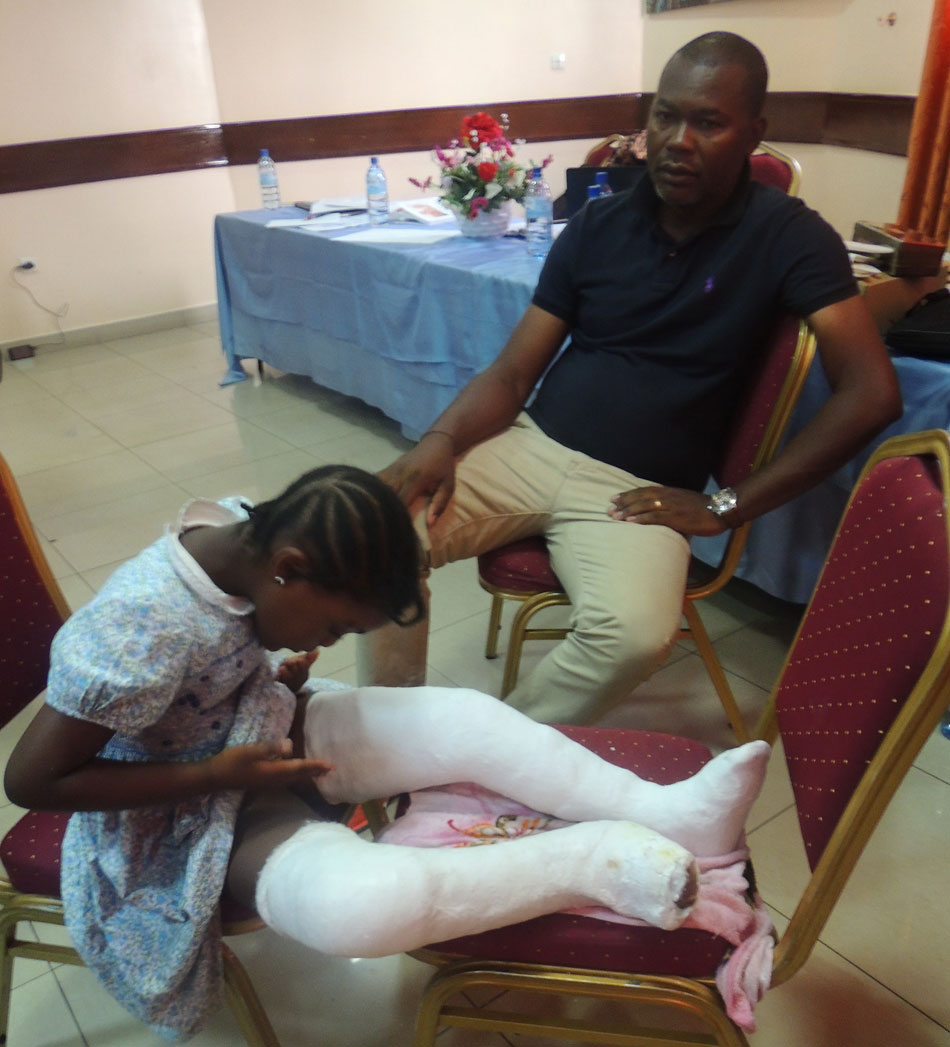
“After learning about the Ponseti method of treating clubfoot I went to PROMHANDICAM, one of the partner clinics of the CCC where my daughter was initiated on the right treatment method; the Ponseti method. A few months later, I noticed great progress on Shama’s foot and this gladdens my heart each day,” stated Mr. Atunga.
For her part, 23-year-old Carine Foumane, a mother of twins who were born with bilateral clubfeet, was present at the workshop for the continuation of treatment. She regretted for her negligence which saw her children relapse their treatment. Like the case of Mr. Atuga and her daughter Shama, Carine too has been a victim of the wrong clubfoot treatment approach.
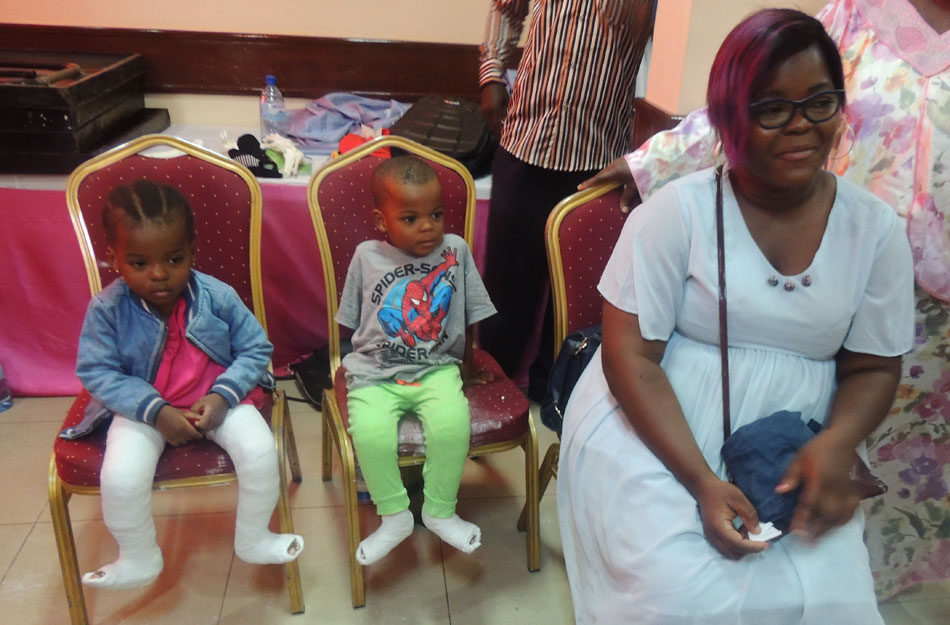
“My twins Ryam Akam and Tyra Foumane started treatment two months after birth and 10 months later, I didn’t see any improvement on their feet. I was hopeful when I changed the treatment center and went to PROMHANDICAM. There, the Ponseti method was introduced and since there has been a significant improvement,” explained Carine.
With her experience, she now advises other parents to take the treatment for their children with clubfoot seriously.
Many parents have suffered a great loss of time and money as a result of the use of wrong clubfoot treatment method. Consequently, the trainers at the refresher course emphasized on counseling of parents before and during treatment with adequate instructions given them and the clubfoot staff making sure that they follow the appropriate procedures of Ponseti method to get the right results.
An outstanding feat of this year’s workshop was the addition of two facilitators; Dr. Atemkeng Faustin; Orthopedic Surgeon from Deido District Hospital Douala and Mr. Nfor Wilfred; Physiotherapist from Mboppi Baptist Hospital Douala. The former had undergone a 10-month mentoring program on the Ponseti method with Mercy Ships thanks to partnership between Mercy Ships and the CCC Project during the Ship’s stay in Cameroon. The duo joined Doctors Ndasi Henry and Ngene Andre to facilitate the refresher course.
Speaking at the close of the workshop, Dr. Ndasi Henry said the training was the last refresher course for the 2 phases of the CCC Project. “More than 800 children with clubfoot deformity have been treated since 2014 that the clubfoot staff were first trained on the Ponseti method of treatment,” revealed Dr. Ndasi.
He is confident that the project has put in place strategies for sustainability like the training of clubfoot staff and the signing of Memoranda of Understanding (MoU) with some partner clinics leading to the involvement of the administration in these clinics.
As the workshop has come and gone, there is need for continuous delivery of results in the field especially with increased rate of children born with clubfoot. As the second phase of the Cameroon Clubfoot Care (CCC) Project gradually draws to the close, all fingers are crossed for the approval of a third phase.
